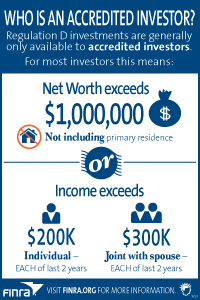All brokers and broker-dealers have an obligation to ensure that their investment or investment strategy recommendation is suitable for the customer. All sales efforts must be reasonable and appropriate for the investor based upon the investor’s risk tolerance, investment objectives, age, financial circumstances, other investment holdings, experience, and other facts or information disclosed by the investor.
With respect to the sale of private placements, regulators have found significant problems in the due diligence and sales efforts of some brokerage firms when selling private placements to investors. These problems include fraud, misrepresentations and omissions in sales materials and offering documents, conflicts of interest, and suitability abuses.
In order for a brokerage firm to meet its due diligence obligation, the brokerage firm must make reasonable efforts to gather and analyze information both about the private placement and the customer the security is being sold to. Private Placements are considered “alternative investments” and are inherently speculative. Consequently, a broker must also ensure that an investment recommendation in a private placement is suitable for the particular customer. The broker must ensure that the client can withstand the risk taken and not imperil the client’s account by concentrating their assets in speculative investments.
 Securities Lawyers Blog
Securities Lawyers Blog



